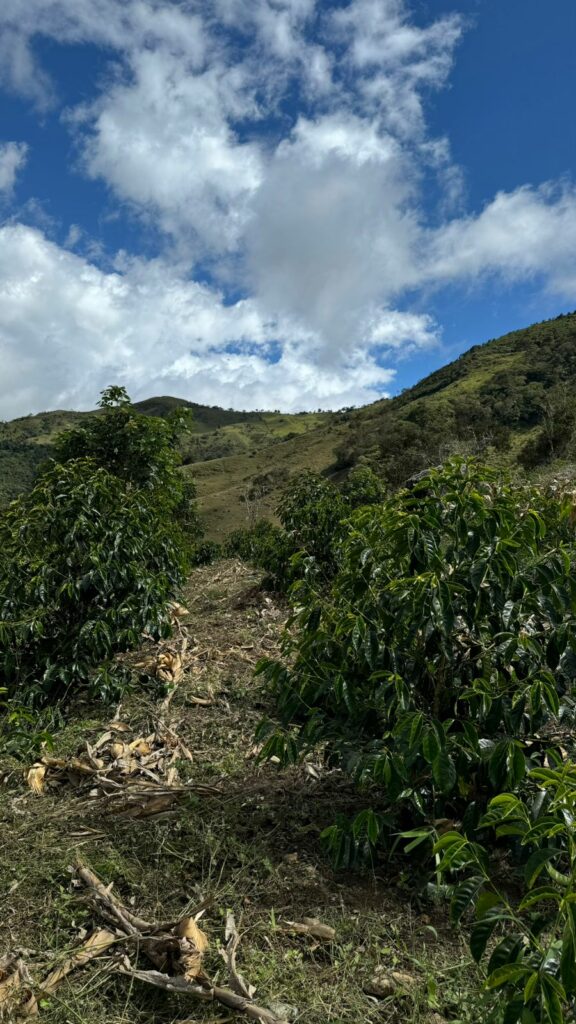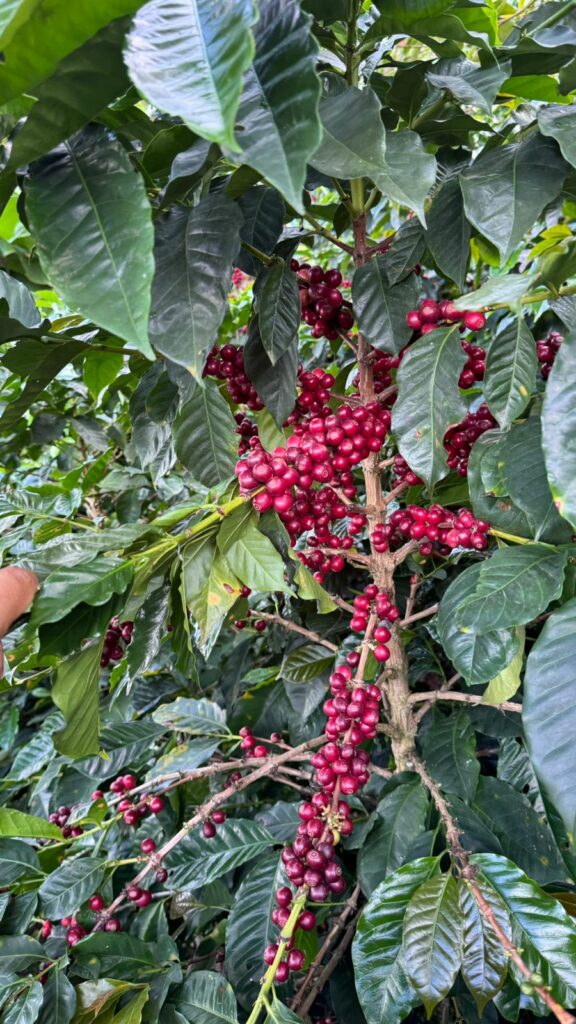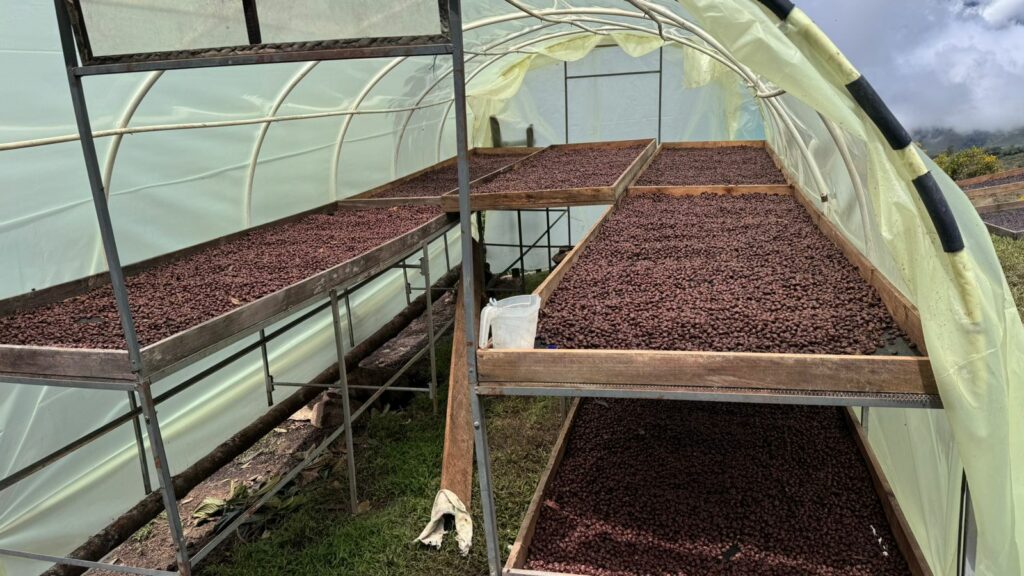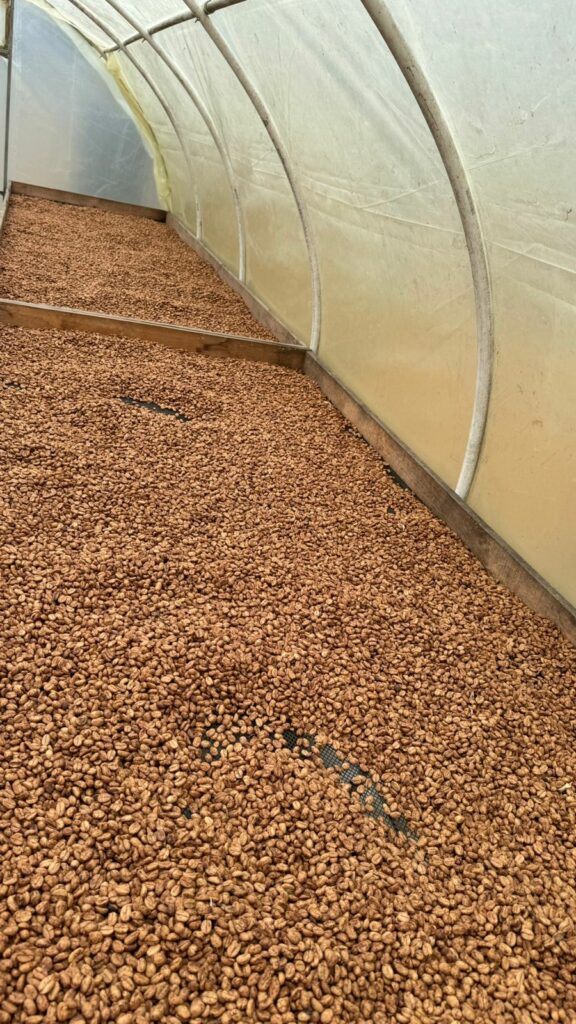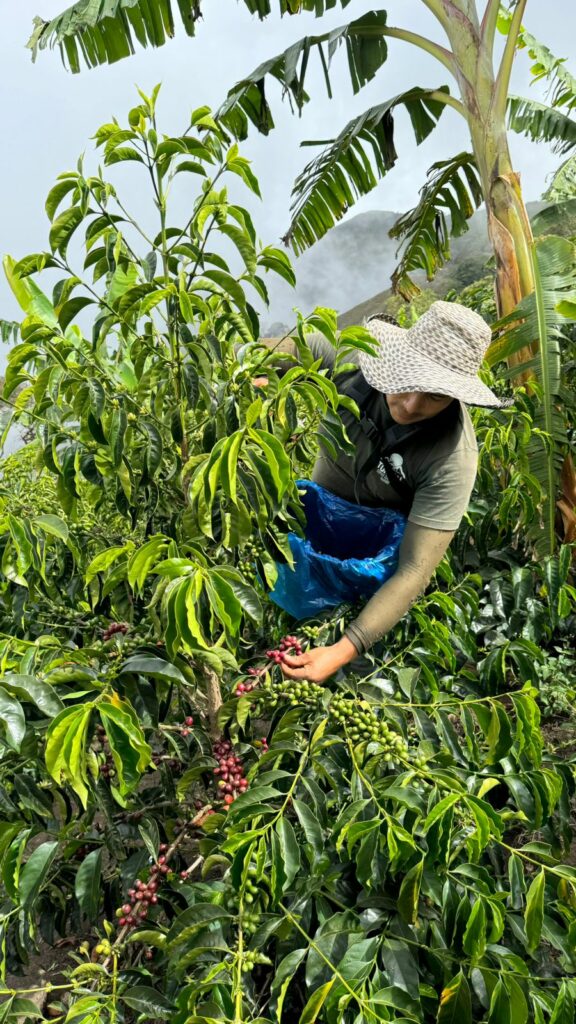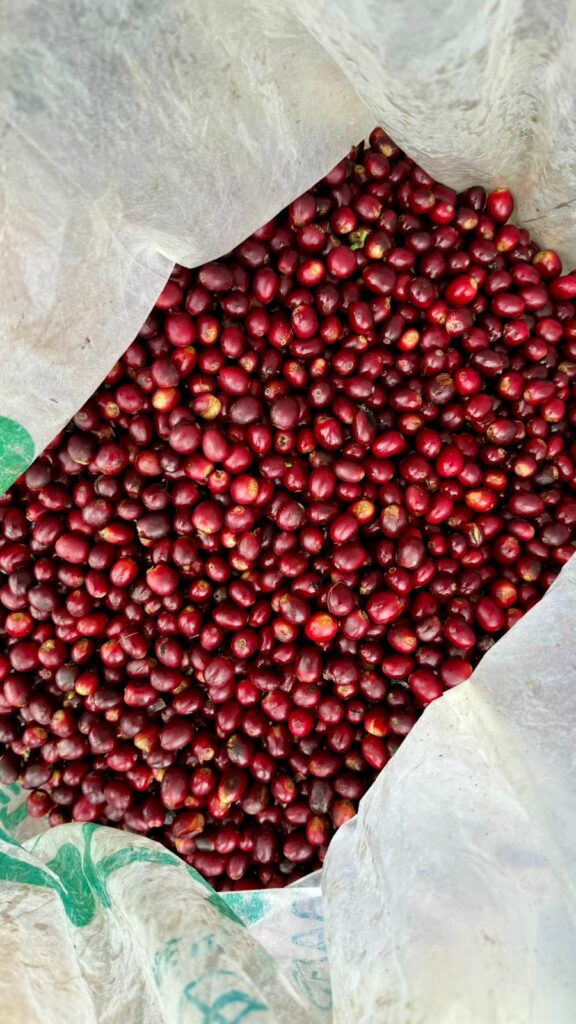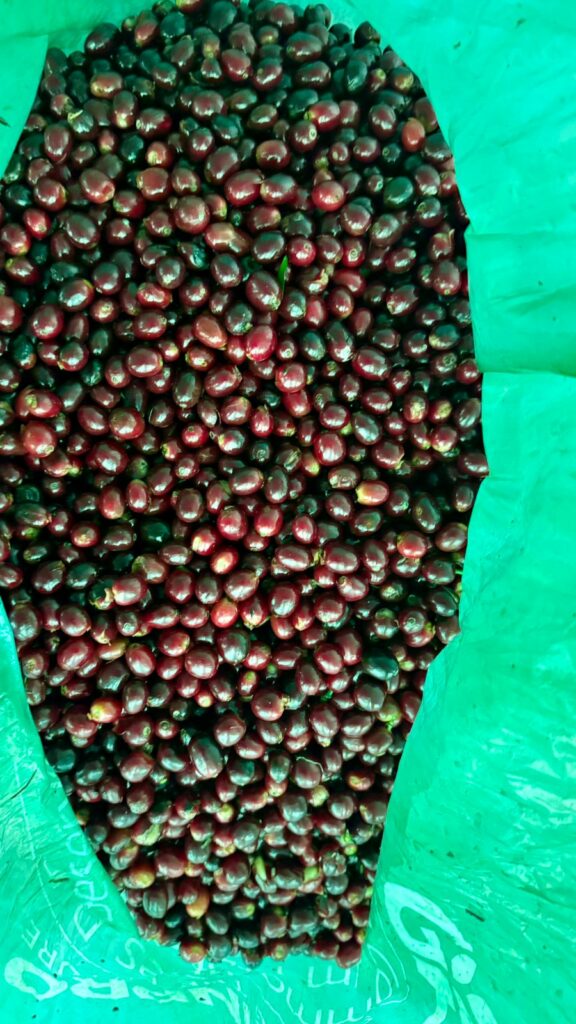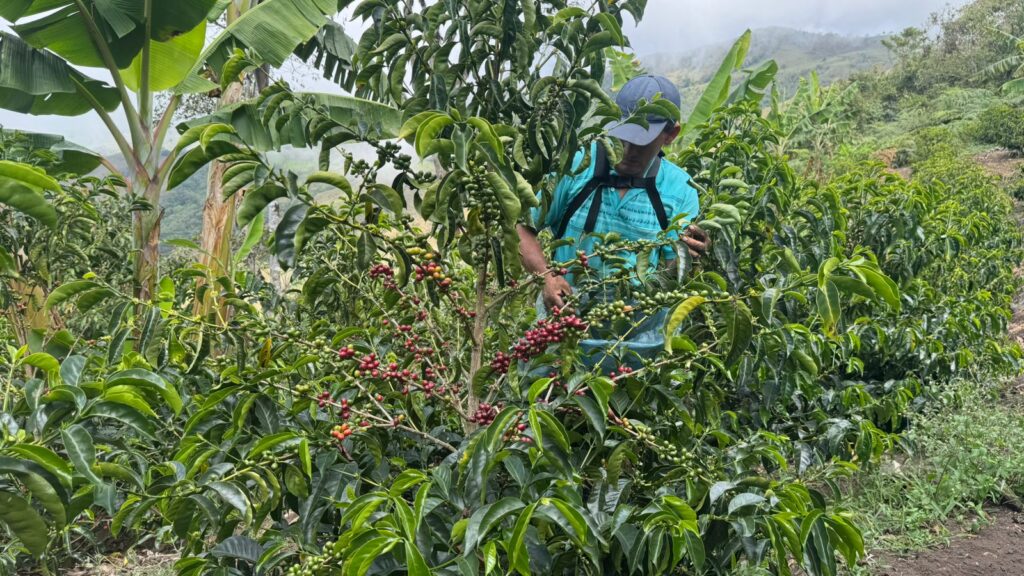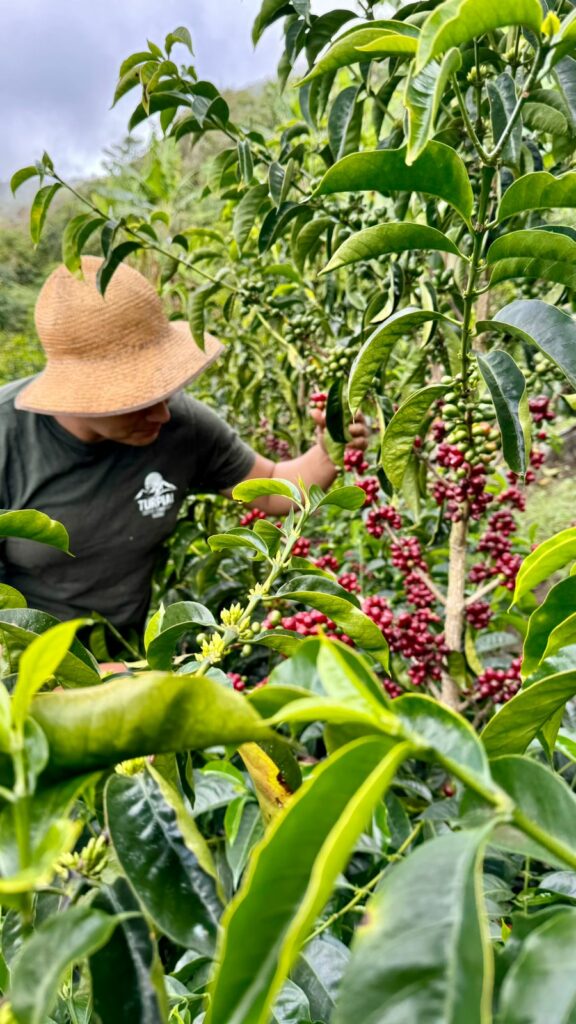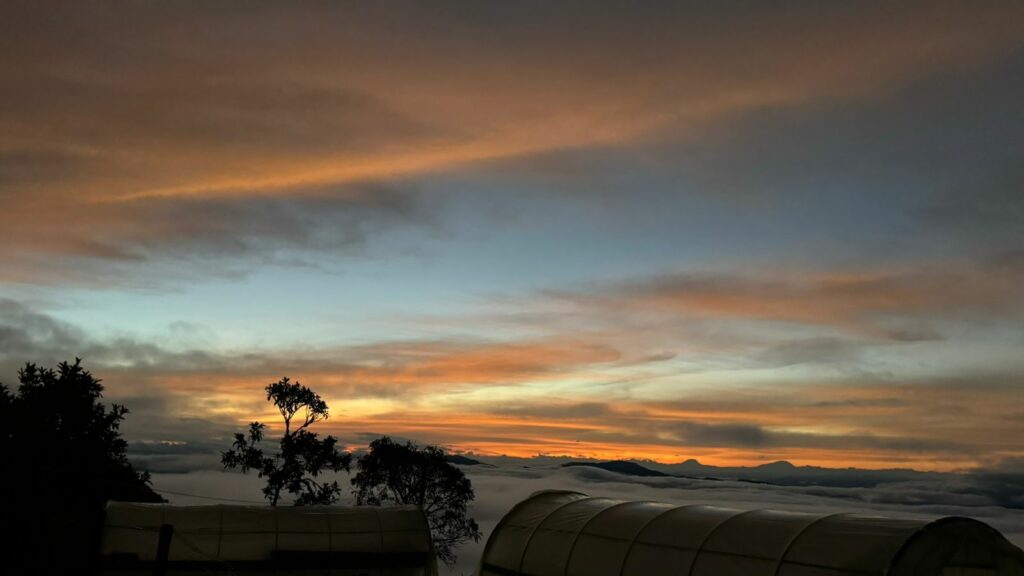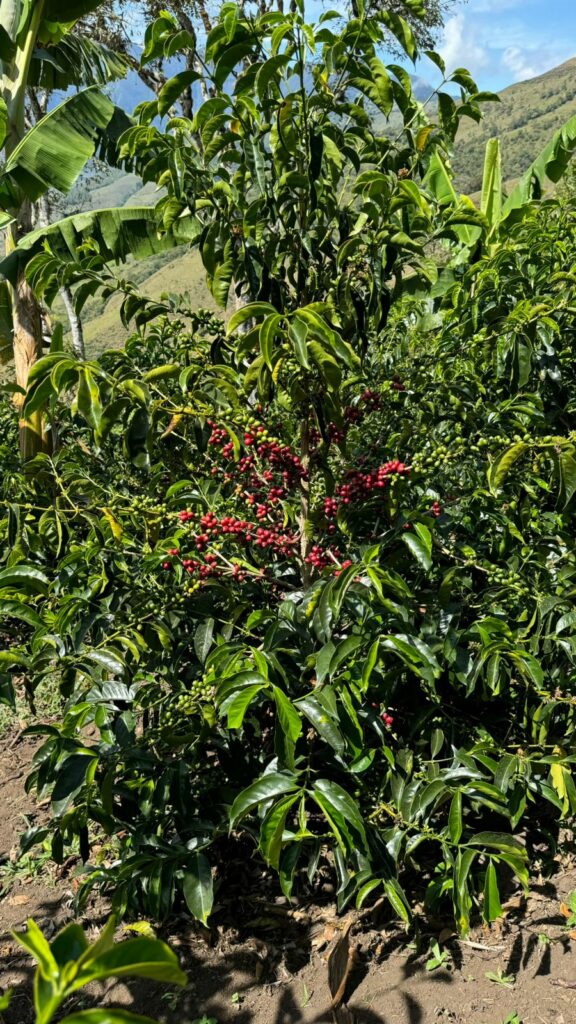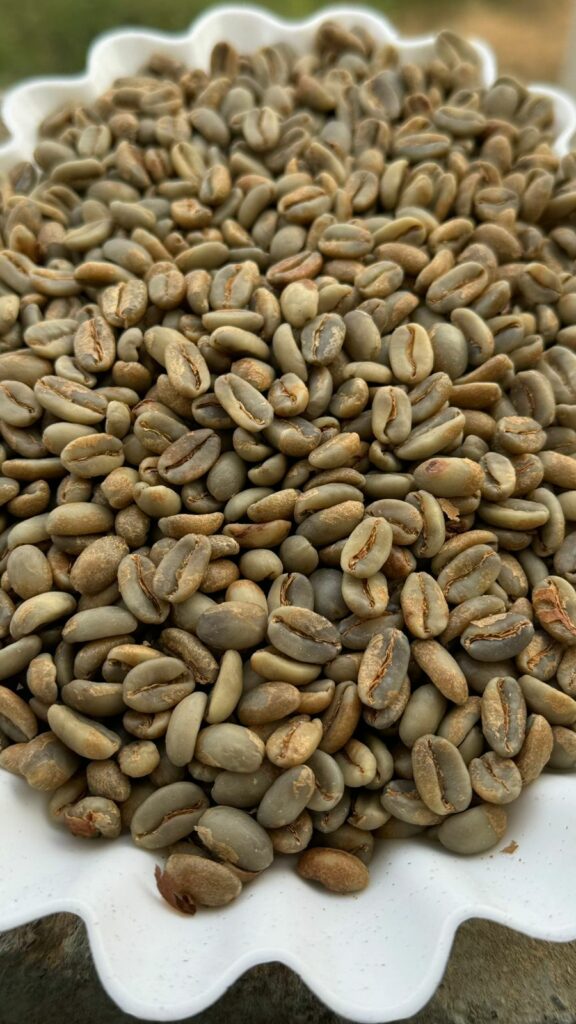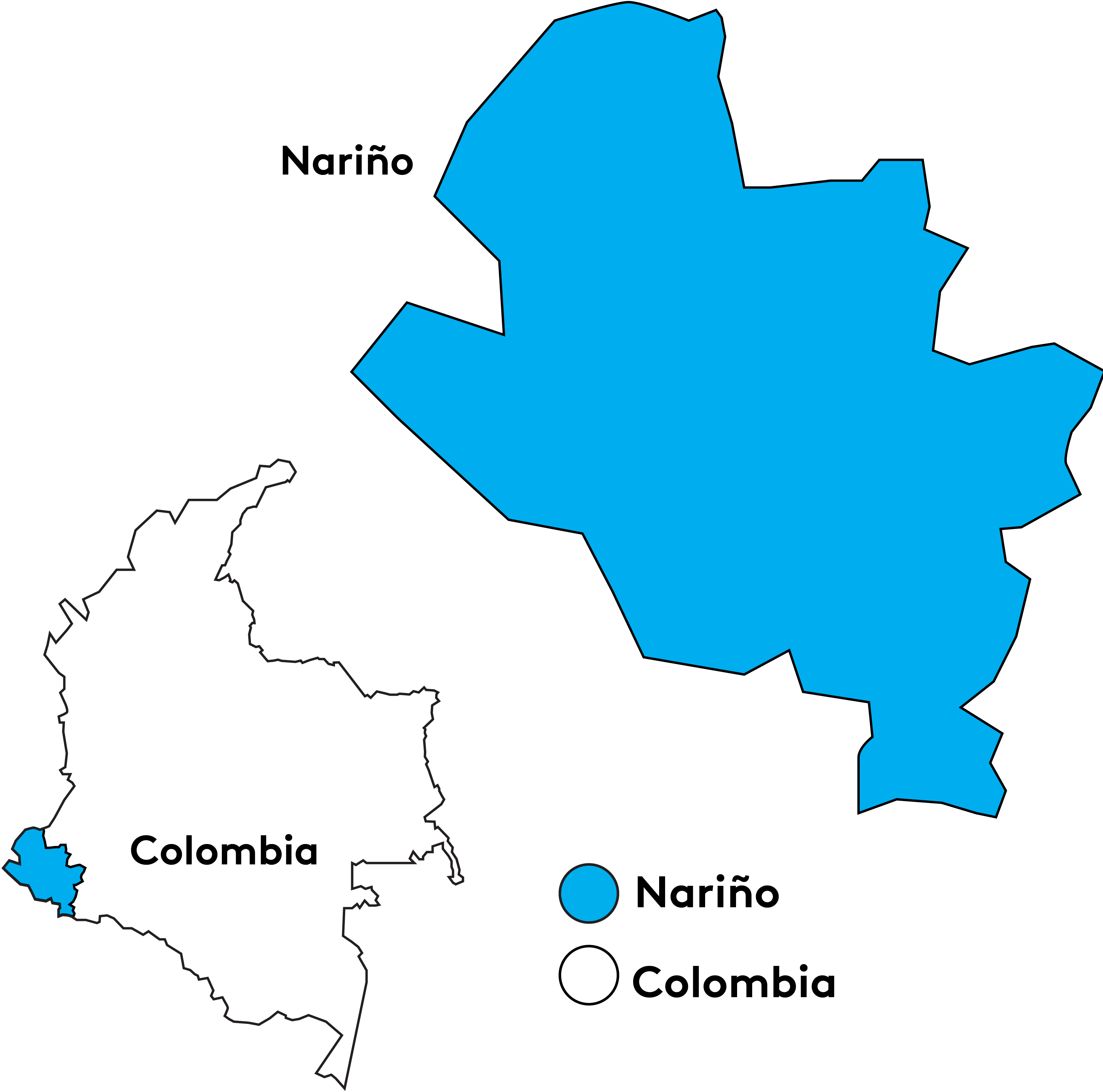Emerson Felipe Narváez was born in the municipality of Policarpa, Nariño. He grew up alongside his four sisters and parents, learning the ways of the land and watching his father cultivate commercial coffee. Yet, following in his father’s footsteps wasn’t part of Emerson’s plans.
Life took a turn when violence struck his family, forcing them to leave their home. In the years that followed, he explored various professions—serving as a soldier, a builder, and a baker—before fate brought him back to coffee. A cooperative introduced him to the world of specialty coffee, and from that moment, he was captivated. His journey into this world deepened, eventually earning him the distinguished title of Q Grader.
Emerson’s dream of cultivating coffee started at La Palma farm, but he craved a bigger challenge. He began searching for a new farm, though most options seemed far beyond his financial reach. Then, he found a place that met his criteria, though it presented significant challenges. Nestled at a high altitude, the farm lacked electricity, running water, and accessible roads. The only way in was by horseback. Still, Emerson saw its strategic location, close to the Pacific, where the unique microclimate offered potential.
With determination, he began experimenting with various processes and varieties like SL28, SL34, Laurina, Pink Bourbon, Geisha, Wush Wush, Sudan Rume, and more. He carefully studied how each variety adapted to the farm’s altitude and conditions. Through perseverance, his dream began to take shape: producing exceptional specialty coffee.
He named his farm “El Turpial” after the bird that sings every day on the land. For Emerson, its song symbolizes a “call to struggle”—a reminder of the journey he’s undertaken.
One of his most notable achievements at El Turpial was a graft that allowed Geisha trees to survive the challenging conditions. Initially, the trees couldn’t withstand the high altitude and sharp temperature changes, with their leaves burning and withering away. Emerson decided to graft Geisha with Caturra, using the latter’s strong root system while preserving Geisha’s unique sensory characteristics in the cup.
This Castillo coffee undergoes a meticulous washed process: after selective harvesting, the cherries ferment for three days in GrainPro bags, which are disinfected with ozone. After pulping, the coffee undergoes secondary fermentation for two days before drying on raised beds.
Through his relentless efforts, Emerson has earned remarkable accolades, including Winner of Best Cup at Mi Nariño 2023, Second Place at Mi Nariño 2022, and Third Place at Mi Nariño 2021.
Know more about Emerson story clicking here
